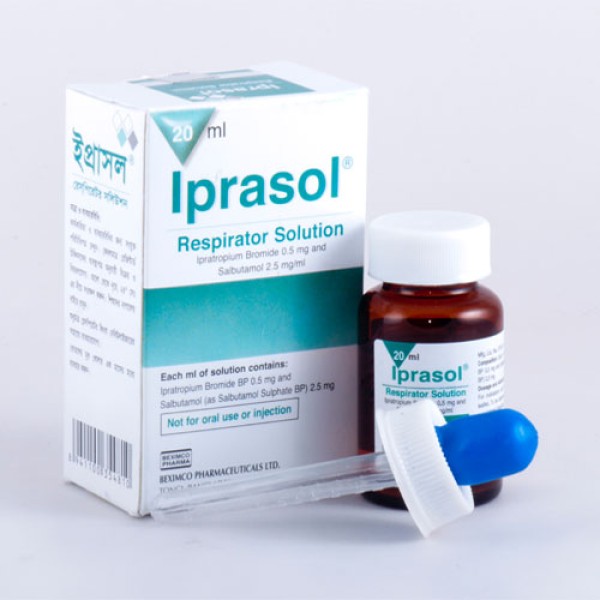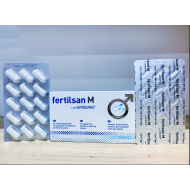
- Stock: In Stock
- Brand: Beximco Pharmaceutical
- Product ID: Salbutamol 100 mcg
100% Secure Payment

This Item is for pre order
Iprasol is a preparation of Salbutamol & Ipratropium bromide.Salbutamol is a beta2-adrenergic agent which acts on airway smooth muscle resulting in relaxation. Ipratropium Bromide is a anticholinergic agent that works as a bronchodilator that dilates the bronchi in the lungs. Iprasol provides the simultaneous release of ipratropium bromide and salbutamol allowing the synergistic efficacy on the muscarinic and beta2-adrenergic receptors in the airways to cause bronchodilation which is superior to that provided by each single agent and with no potentiation of adverse events.
- Offers definite relief to the patients in asthma & COPD
- Ensures treatment adherence & patients? compliance
- An effective & safer alternative to nebulizer both in home & emergency setting
 Iprasol Prescribing Information
Iprasol Prescribing Information
( Ipratropium Bromide 0.5 mg and Salbutamol 2.5 mg/ml Respirator Solution )
This Inhalation Solution is a combination of the anticholinergic bronchodilator, ipratropium bromide, and the ß2-adrenergic bronchodilator, salbutamol sulfate. Ipratropium bromide is a quaternary ammonium derivative of atropine and is an anticholinergic drug which has bronchodilator properties. On inhalation, the onset of action is noted within 5 to 15 minutes, with a peak response between 1 and 2 hours, lasting about 2 additional hours, with subsequent decline from the peak. Bronchodilation is still evident 8 hours after inhalation. Salbutamol produces bronchodilation through stimulation of ß2-adrenergic receptors in bronchial smooth muscle, thereby causing relaxation of muscle fibres. This action is manifested by an increase in pulmonary function as demonstrated by spirometric measurements. A measurable decrease in airway resistance is typically observed 5 to 15 minutes after inhalation of salbutamol. The maximum improvement in pulmonary function usually occurs after 60 to 90 minutes, and significant bronchodilator activity has been observed to persist from 3 to 6 hours.













%20Pvt.%20Ltd./Movicol-Oral-Powder-190x190.jpg)
